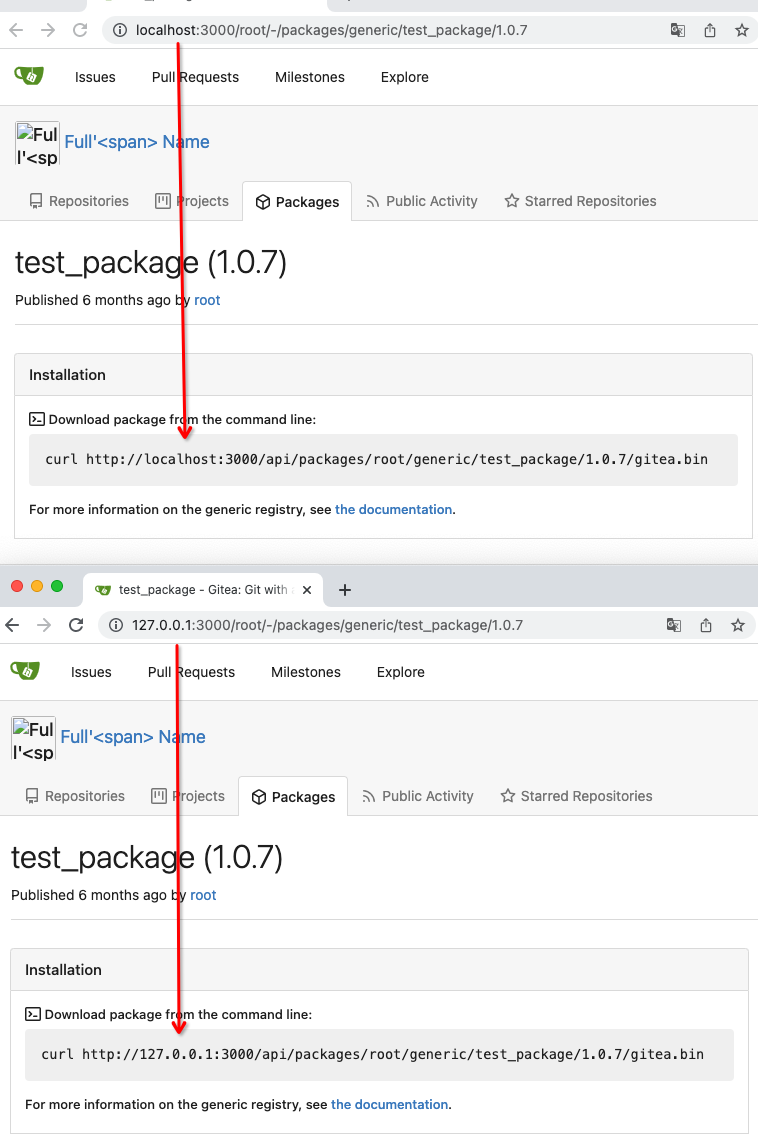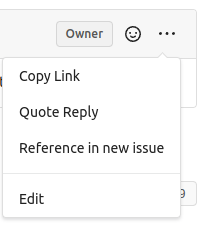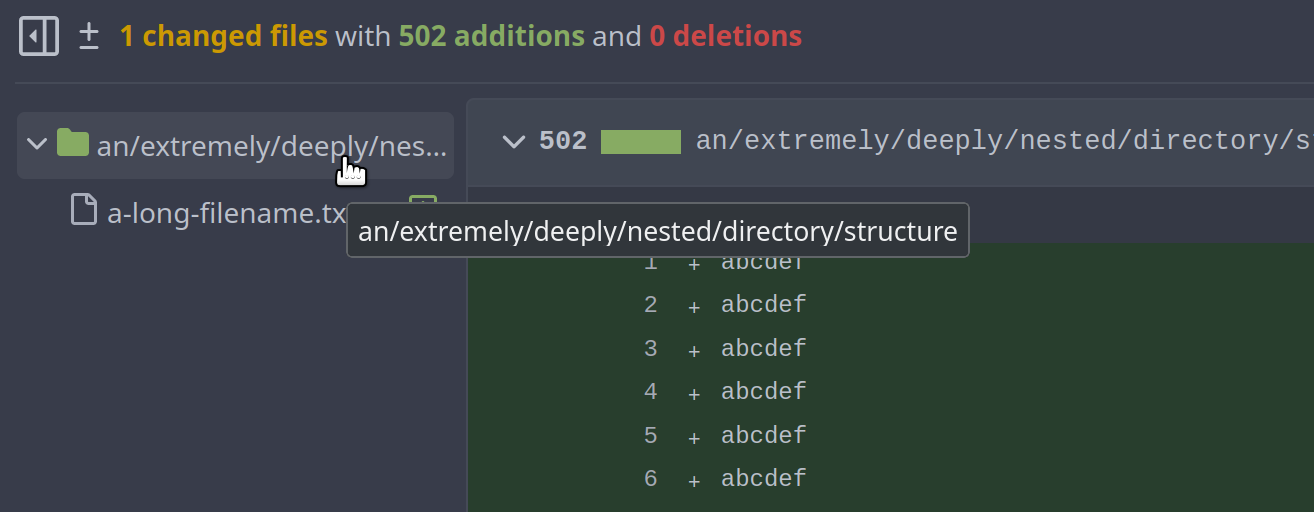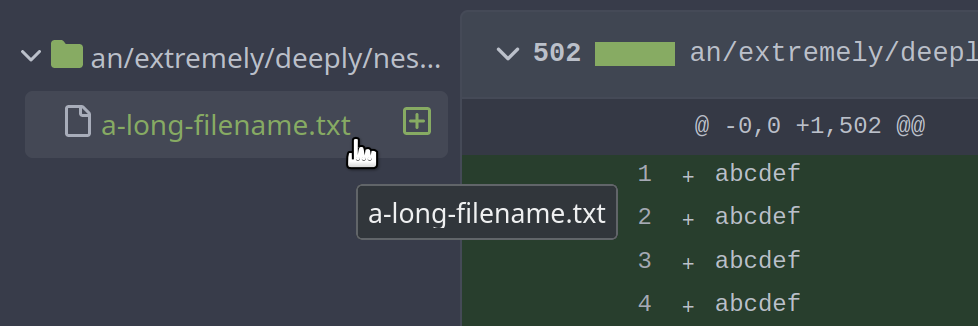Although it would be possible to modify these files, it would create
conflicts when rebasing. Instead, this commit removes them entirely
and another commit can start from scratch, borrowing content from the
original files.
The drawback of this approach is that some content updates from Gitea
that also need updating in Forgejo will have to be copy/pasted
instead of being merged.
(cherry picked from commit eb85782115)
During the recent hash algorithm change it became clear that the choice
of password hash algorithm plays a role in the time taken for CI to run.
Therefore as attempt to improve CI we should consider using a dummy
hashing algorithm instead of a real hashing algorithm.
This PR creates a dummy algorithm which is then set as the default
hashing algorithm during tests that use the fixtures. This hopefully
will cause a reduction in the time it takes for CI to run.
---------
Signed-off-by: Andrew Thornton <art27@cantab.net>
Co-authored-by: Lunny Xiao <xiaolunwen@gmail.com>
Some bugs caused by less unit tests in fundamental packages. This PR
refactor `setting` package so that create a unit test will be easier
than before.
- All `LoadFromXXX` files has been splited as two functions, one is
`InitProviderFromXXX` and `LoadCommonSettings`. The first functions will
only include the code to create or new a ini file. The second function
will load common settings.
- It also renames all functions in setting from `newXXXService` to
`loadXXXSetting` or `loadXXXFrom` to make the function name less
confusing.
- Move `XORMLog` to `SQLLog` because it's a better name for that.
Maybe we should finally move these `loadXXXSetting` into the `XXXInit`
function? Any idea?
---------
Co-authored-by: 6543 <6543@obermui.de>
Co-authored-by: delvh <dev.lh@web.de>
This PR refactors and improves the password hashing code within gitea
and makes it possible for server administrators to set the password
hashing parameters
In addition it takes the opportunity to adjust the settings for `pbkdf2`
in order to make the hashing a little stronger.
The majority of this work was inspired by PR #14751 and I would like to
thank @boppy for their work on this.
Thanks to @gusted for the suggestion to adjust the `pbkdf2` hashing
parameters.
Close#14751
---------
Signed-off-by: Andrew Thornton <art27@cantab.net>
Co-authored-by: delvh <dev.lh@web.de>
Co-authored-by: John Olheiser <john.olheiser@gmail.com>
Co-authored-by: Lunny Xiao <xiaolunwen@gmail.com>
Close#22847
This PR:
* introduce Gitea's own `showElem` and related functions
* remove jQuery show/hide
* remove .hide class
* remove inline style=display:none
From now on:
do not use:
* "[hidden]" attribute: it's too weak, can not be applied to an element
with "display: flex"
* ".hidden" class: it has been polluted by Fomantic UI in many cases
* inline style="display: none": it's difficult to tweak
* jQuery's show/hide/toggle: it can not show/hide elements with
"display: xxx !important"
only use:
* this ".gt-hidden" class
* showElem/hideElem/toggleElem functions in "utils/dom.js"
cc: @silverwind , this is the all-in-one PR
Add a new "exclusive" option per label. This makes it so that when the
label is named `scope/name`, no other label with the same `scope/`
prefix can be set on an issue.
The scope is determined by the last occurence of `/`, so for example
`scope/alpha/name` and `scope/beta/name` are considered to be in
different scopes and can coexist.
Exclusive scopes are not enforced by any database rules, however they
are enforced when editing labels at the models level, automatically
removing any existing labels in the same scope when either attaching a
new label or replacing all labels.
In menus use a circle instead of checkbox to indicate they function as
radio buttons per scope. Issue filtering by label ensures that only a
single scoped label is selected at a time. Clicking with alt key can be
used to remove a scoped label, both when editing individual issues and
batch editing.
Label rendering refactor for consistency and code simplification:
* Labels now consistently have the same shape, emojis and tooltips
everywhere. This includes the label list and label assignment menus.
* In label list, show description below label same as label menus.
* Don't use exactly black/white text colors to look a bit nicer.
* Simplify text color computation. There is no point computing luminance
in linear color space, as this is a perceptual problem and sRGB is
closer to perceptually linear.
* Increase height of label assignment menus to show more labels. Showing
only 3-4 labels at a time leads to a lot of scrolling.
* Render all labels with a new RenderLabel template helper function.
Label creation and editing in multiline modal menu:
* Change label creation to open a modal menu like label editing.
* Change menu layout to place name, description and colors on separate
lines.
* Don't color cancel button red in label editing modal menu.
* Align text to the left in model menu for better readability and
consistent with settings layout elsewhere.
Custom exclusive scoped label rendering:
* Display scoped label prefix and suffix with slightly darker and
lighter background color respectively, and a slanted edge between them
similar to the `/` symbol.
* In menus exclusive labels are grouped with a divider line.
---------
Co-authored-by: Yarden Shoham <hrsi88@gmail.com>
Co-authored-by: Lauris BH <lauris@nix.lv>
This PR follows:
* #21986
* #22831
This PR also introduce customized HTML elements, which would also help
problems like:
* #17760
* #21429
* #21440
With customized HTML elements, there won't be any load-search-replace
operations, and it can avoid page flicking (which @silverwind cares a
lot).
Browser support:
https://developer.mozilla.org/en-US/docs/Web/API/Window/customElements
# FAQ
## Why the component has the prefix?
As usual, I would strongly suggest to add prefixes for our own/private
names. The dedicated prefix will avoid conflicts in the future, and it
makes it easier to introduce various 3rd components, like GitHub's
`relative-time` component. If there is no prefix, it's impossible to
introduce another public component with the same name in the future.
## Why the `custcomp.js` is loaded before HTML body? The `index.js` is
after HTML body.
Customized components must be registered before the content loading.
Otherwise there would be still some flicking.
`custcomp.js` should have its own dependencies and should be very light,
so it won't affect the page loading time too much.
## Why use `data-url` attribute but not use the `textContent`?
According to the standard, the `connectedCallback` occurs on the
tag-opening moment. The element's children are not ready yet.
## Why not use `{{.GuessCurrentOrigin $.ctx ...}}` to let backend decide
the absolute URL?
It's difficult for backend to guess the correct protocol(scheme)
correctly with zero configuration. Generating the absolute URL from
frontend can guarantee that the URL is 100% correct -- since the user is
visiting it.
# Screenshot
<details>

</details>
The main purpose of these home pages should be getting an overview of
what's going on or needs attention. Recently updated is a better default
than newest for that purpose, to avoid missing active issues and pulls
that were not created recently.
The default sorting order in repository issues and pulls remains newest.
Repositories in an organization are already sorted by recently updated.
---------
Co-authored-by: Jason Song <i@wolfogre.com>
Co-authored-by: Lunny Xiao <xiaolunwen@gmail.com>
This is an alternative solution to #22824
and would also close#22781
This makes the PR diff view always full width.
It makes sense to make use of that screen real estate. If you want a
more narrow view you can always resize your browser.
It also avoids cluttering the UI with another button + the database with
another column for the setting.
This is also how github and gitlab do it.
Unfortunately #20896 does not completely prevent Data too long issues
and GPGKeyImport needs to be increased too.
Fix#22896
Signed-off-by: Andrew Thornton <art27@cantab.net>
Allow back-dating user creation via the `adminCreateUser` API operation.
`CreateUserOption` now has an optional field `created_at`, which can
contain a datetime-formatted string. If this field is present, the
user's `created_unix` database field will be updated to its value.
This is important for Blender's migration of users from Phabricator to
Gitea. There are many users, and the creation timestamp of their account
can give us some indication as to how long someone's been part of the
community.
The back-dating is done in a separate query that just updates the user's
`created_unix` field. This was the easiest and cleanest way I could
find, as in the initial `INSERT` query the field always is set to "now".
The "Reference in new issue" option shows up in a menu when looking at
pull requests. All the other options there follow the "Title case":
* Copy Link
* Quote Reply
* Edit
This patch makes sure this option also follow the Title case.
Screenshot of how it looks without this patch:

Co-authored-by: Dalai Felinto <dalai@blender.org>
Co-authored-by: Lunny Xiao <xiaolunwen@gmail.com>
Sometimes it can be helpful to continue from a broken cherry-pick. This
PR adds another option which can be used to determine the version and pr
number from the current branch name instead of reading the config.yaml
file.
---------
Signed-off-by: Andrew Thornton <art27@cantab.net>
Previously, a file/directory name was simply cut when it was too long.
Now, we display the browser-native tooltip (`title`) instead, so you can
still see it when hovering over it.
In this case, we don't use the normal `tippy` tooltips for three
reasons:
1. Vue components are not included in the global tooltip initialization
2. Vue components would need to initialize their tooltips themselves
whenever their content is changed
3. The tooltips are shown too long under the default configuration (the
tooltip one element above is still shown when hovering on the element
below)
Fixes#22915
## Appearance

## Room for future improvement
We could think about displaying the whole file path in the title, not
just its name.
This is not done at the moment:

---------
Co-authored-by: techknowlogick <techknowlogick@gitea.io>
Fix#22797.
## Reason
If a comment was migrated from other platforms, this comment may have an
original author and its poster is always not the original author. When
the `roleDescriptor` func get the poster's role descriptor for a
comment, it does not check if the comment has an original author. So the
migrated comments' original authors might be marked as incorrect roles.
---------
Co-authored-by: zeripath <art27@cantab.net>
Co-authored-by: Lunny Xiao <xiaolunwen@gmail.com>
To avoid duplicated load of the same data in an HTTP request, we can set
a context cache to do that. i.e. Some pages may load a user from a
database with the same id in different areas on the same page. But the
code is hidden in two different deep logic. How should we share the
user? As a result of this PR, now if both entry functions accept
`context.Context` as the first parameter and we just need to refactor
`GetUserByID` to reuse the user from the context cache. Then it will not
be loaded twice on an HTTP request.
But of course, sometimes we would like to reload an object from the
database, that's why `RemoveContextData` is also exposed.
The core context cache is here. It defines a new context
```go
type cacheContext struct {
ctx context.Context
data map[any]map[any]any
lock sync.RWMutex
}
var cacheContextKey = struct{}{}
func WithCacheContext(ctx context.Context) context.Context {
return context.WithValue(ctx, cacheContextKey, &cacheContext{
ctx: ctx,
data: make(map[any]map[any]any),
})
}
```
Then you can use the below 4 methods to read/write/del the data within
the same context.
```go
func GetContextData(ctx context.Context, tp, key any) any
func SetContextData(ctx context.Context, tp, key, value any)
func RemoveContextData(ctx context.Context, tp, key any)
func GetWithContextCache[T any](ctx context.Context, cacheGroupKey string, cacheTargetID any, f func() (T, error)) (T, error)
```
Then let's take a look at how `system.GetString` implement it.
```go
func GetSetting(ctx context.Context, key string) (string, error) {
return cache.GetWithContextCache(ctx, contextCacheKey, key, func() (string, error) {
return cache.GetString(genSettingCacheKey(key), func() (string, error) {
res, err := GetSettingNoCache(ctx, key)
if err != nil {
return "", err
}
return res.SettingValue, nil
})
})
}
```
First, it will check if context data include the setting object with the
key. If not, it will query from the global cache which may be memory or
a Redis cache. If not, it will get the object from the database. In the
end, if the object gets from the global cache or database, it will be
set into the context cache.
An object stored in the context cache will only be destroyed after the
context disappeared.
As part of administration sometimes it is appropriate to forcibly tell
users to update their passwords.
This PR creates a new command `gitea admin user must-change-password`
which will set the `MustChangePassword` flag on the provided users.
Signed-off-by: Andrew Thornton <art27@cantab.net>